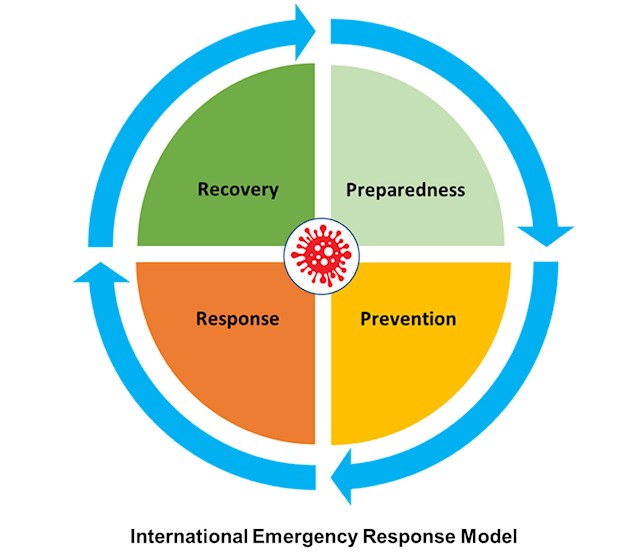

United Against Crisis: The Global Pandemic Response
In the face of an unprecedented global health crisis, nations worldwide have united to formulate a coordinated global pandemic response. This article explores the multifaceted aspects of this response, from collaborative research and vaccine distribution to economic support and the lessons learned for future preparedness.
Collaborative Research Initiatives: A Shared Quest for Solutions
The global pandemic response has witnessed an unparalleled level of collaborative research initiatives. Scientists, researchers, and institutions from different countries have come together to share data, expertise, and findings. This collaborative effort has accelerated the understanding of the virus, treatment options, and the development of vaccines.
Vaccine Development and Distribution: A Global Endeavor
Central to the global pandemic response is the development and distribution of vaccines. Nations have collaborated with pharmaceutical companies, international organizations, and NGOs to ensure equitable access to vaccines. Initiatives like COVAX have been pivotal in distributing vaccines to low-income countries, emphasizing the collective commitment to global health.
Economic Support for Nations in Need: Mitigating Financial Fallout
Recognizing the economic repercussions of the pandemic, the global response includes economic support for nations facing financial challenges. Multilateral organizations and wealthier nations have provided financial aid, debt relief, and assistance packages to ensure that economies can recover and rebuild after the crisis subsides.
International Cooperation for Public Health: Strengthening Institutions
International cooperation in public health has been a cornerstone of the global pandemic response. Organizations like the World Health Organization (WHO) have played a central role in coordinating efforts, providing guidance, and mobilizing resources. Strengthening these institutions ensures a more effective and unified response to health crises.
Lessons Learned: Shaping Future Preparedness
The global pandemic response has not only addressed the immediate crisis but has also generated valuable lessons for future preparedness. Nations are reevaluating their healthcare infrastructures, crisis management strategies, and collaborative frameworks to be better equipped for potential future health challenges.
Challenges and Inequalities: Addressing Disparities in Response
Despite a united front, challenges and inequalities persist in the global pandemic response. Disparities in vaccine distribution, healthcare access, and economic support highlight the need for ongoing efforts to ensure a more inclusive and equitable response to global health crises.
Communication and Information Sharing: Building Trust and Transparency
Effective communication and information sharing have been integral to the global pandemic response. Timely dissemination of accurate information, transparency about challenges, and sharing best practices contribute to building trust among nations and fostering a collective understanding of the evolving situation.
Global Solidarity in Action: Stories of Resilience
The global pandemic response has also showcased stories of resilience and solidarity. Communities, organizations, and individuals have stepped up to support one another. Acts of kindness, innovation, and mutual aid exemplify the strength of global solidarity in the face of adversity.
Looking Forward: A Unified Vision for Health Security
As the world continues to navigate the challenges posed by the pandemic, the global response sets the stage for a unified vision of health security. Collaborative efforts, lessons learned, and a commitment to equitable access to healthcare and resources provide hope for a future where nations stand united against any global health threat.
For more insights on the global pandemic response, visit Global Pandemic Response.







